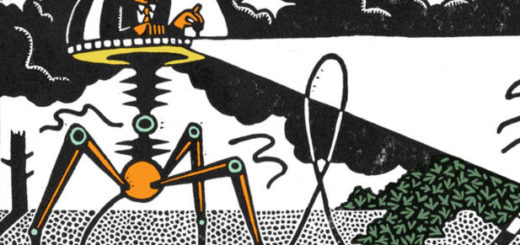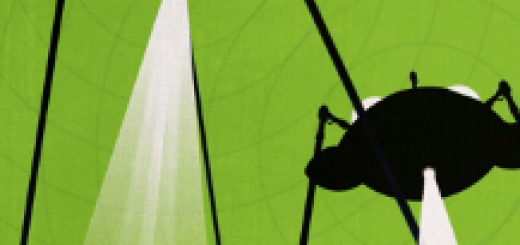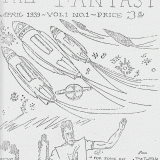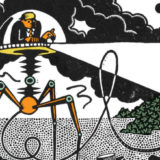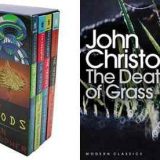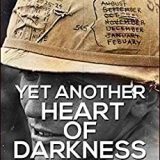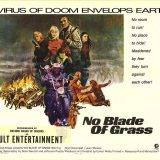Adult fiction
Far more than writing stories
Poet Alex Ness (Poplitiko) contemplates three scifi writers ‘who are worth seeking’.
‘John Christopher was a serious mind,’ he writes, ‘but for a portion of his career he considered serious questions from the perspective of crisis and human response. To call his work science fiction in genre is fair, but he was far more than writing stories. ‘
Civilisation: three missed meals away from anarchy!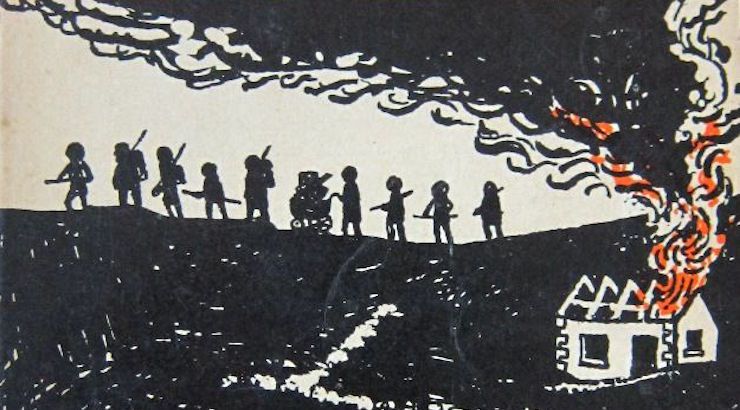
The blogger Failures in Polymathy (‘personal ramblings, thinly veiled as thoughts on what I read’) finally gets round to reading a book he’s noticed on numerous ‘must-read’ scifi lists around the internet. ‘How apropos to be reading this in 2021,’ he writes. ‘There are no similarities to this virus and our own, but the interesting thing for me wouldn’t have been there anyway. What was interesting was that, unlike the line about missed meals , society in the book collapses at the mention of coming missed meals. That, I think, is where this hit home. It felt a lot of the people were waiting to act barbarously, and the coming famine was just a really good scapegoat.’ He also appreciates that the condescending attitude towards the Asian reaction to the famine – which the occasional casual reader has judged to be racist – ‘ultimately turned out to be pretty delicious irony’.
The Land of Nod
Calmgrove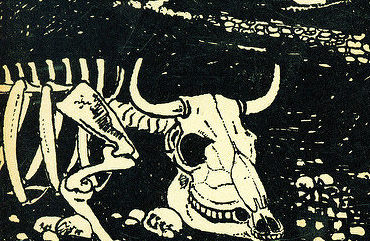 (‘exploring the world of ideas through books’) equates the concept of Blind Gill – the protected valley that is the intended destination of John Custance and his band in ‘The Death of Grass’ – with the eponymous Land of Nod, to which, according to Genesis, Cain was exiled after the murder of Abel. Of the book as a whole, he writes: ‘Published barely a decade after the war ended, The Death of Grass has aged surprisingly little in the intervening six or so decades. Yes, gender roles may be less rigid, and communications media may be more diverse, but human nature doesn’t essentially change, especially when under stress: duplicitous politicians and suspicious locals are always in evidence, decisive leaders gain a degree of loyalty, pecking orders are established, and the weak go to the wall in any crisis.’
(‘exploring the world of ideas through books’) equates the concept of Blind Gill – the protected valley that is the intended destination of John Custance and his band in ‘The Death of Grass’ – with the eponymous Land of Nod, to which, according to Genesis, Cain was exiled after the murder of Abel. Of the book as a whole, he writes: ‘Published barely a decade after the war ended, The Death of Grass has aged surprisingly little in the intervening six or so decades. Yes, gender roles may be less rigid, and communications media may be more diverse, but human nature doesn’t essentially change, especially when under stress: duplicitous politicians and suspicious locals are always in evidence, decisive leaders gain a degree of loyalty, pecking orders are established, and the weak go to the wall in any crisis.’
Noah Berlatsky on John Christopher
In his recent collection of essays Yet Another Heart of Darkness, journalist Noah Berlatsky provides penetrative analyses of two of John Christopher’s adult novels, The Possessors (Colonizing the Colonizers ) and The World in Winter (The Nigerians Invade London). See our ‘Fiction for Young Adults‘ resources page for his Wired magazine essay on The Tripods, Forget Winning the Hunger Games!
 ‘Retreat is not an option!’
‘Retreat is not an option!’
Digital artist Damian Mark Whittle explains how ‘Death of Grass’ bridges the gap ‘between the “cosy catastrophes” of Wyndham and the dystopian modernity of Ballard … In some respects, the book could be seen as a reaction against works like “The Day of the Triffids” in which a civilized few retreat to a cheerfully isolated existence with chaos kept outside. Here, the chaos is everywhere and retreat is not an option.’
No Blade of Grass 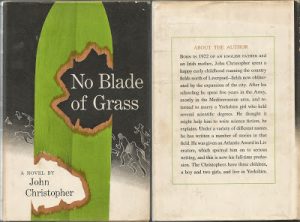
Last autumn, blogger M Porcius (‘I hope to include spoilers in every post. The whale beats Ahab, by the way.’) came across a rare hardback edition of ‘No Blade of Grass’. Intrigued by the jacket, ‘with its unusual come-on (“this jacket description has made no attempt to give you any idea of the plot”)’, he sets out to discover if the text lives up to the hype.
The blank screen is the enemy
Online magazine on books, the arts and culture ‘The Millions’ interviews David Mitchell, author of ‘Cloud Atlas’: ‘Actually, I read a really good book published in the 1950s called The Death of Grass, where a killer virus doesn’t kill us, humans, as they do in many contemporary stories, but it gets the crops we eat. That’s more interesting to me …’
The Apocalypse Read
Blogger David Moody lists five novels about the end of the world ‘that you probably haven’t read but really should’ – including ‘The Death of Grass’. ‘A startling read,’ he concludes, ‘that holds a mirror up to our dinner plate, making the reader immediately grateful for the tins they have in the cupboard, and which haunts every mouthful thereafter.’
The Death of Grass … a forgotten apocalyptic classic
The Duck Loving Book Addict comes across ‘The Death of Grass’ in Chichester Library: ‘one of the bleakest books I have ever had the pleasure to read’.
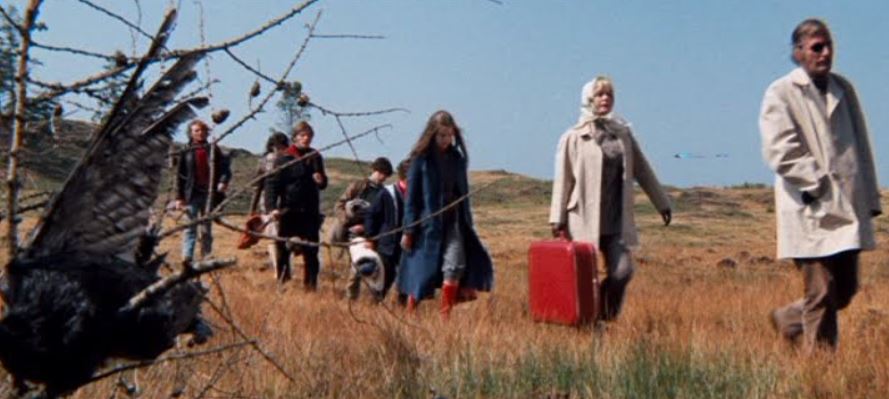 No Blade of Grass — trailer
No Blade of Grass — trailer
In 1970, the film ‘No Blade of Grass’ (US title of ‘The Death of Grass’) was released under the strapline, ‘No room to run – no place to hide – no blade of grass’. Years later, when it was broadcast as a late night movie, the author sat down to watch it in a comfy chair, a glass of whisky to hand. He lasted until the first advert break and then, sensibly, retired to bed.
Nazi Leprechauns
John Christopher published ‘The Little People’ in 1966: in recent years the Hector Garrido cover for the US Avon paperback has possibly attracted more interest than the book. 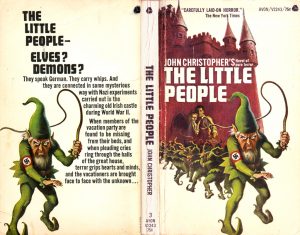 While Twitter abounds with comments such as ‘WTF? Nazi Leprechauns?? Begorrah mein Fuhrer’, one Amazon reviewer saw beyond the lurid cover: ‘This book could be seen as … full of mundane backstories and psychological profiles of the characters in it when the promise was a book about Nazi elves … At the end of the book, I realized the author’s intent was to write about “The Little People”- not the Nazi elves, but rather the horror of the characters being so entrenched in their thinking, mundanity, and so wrapped up in their own worlds that they could be nothing except “little people”.’
While Twitter abounds with comments such as ‘WTF? Nazi Leprechauns?? Begorrah mein Fuhrer’, one Amazon reviewer saw beyond the lurid cover: ‘This book could be seen as … full of mundane backstories and psychological profiles of the characters in it when the promise was a book about Nazi elves … At the end of the book, I realized the author’s intent was to write about “The Little People”- not the Nazi elves, but rather the horror of the characters being so entrenched in their thinking, mundanity, and so wrapped up in their own worlds that they could be nothing except “little people”.’
The best of 1964
HiLowBrow picks the best 10 Adventure Stories from 1964. Sharing the honours with Ian Fleming, Len Deighton, J G Ballard and William Burroughs is John Christopher’s ‘Sweeney’s Island’, the original US title of ‘Cloud on Silver’, now available again from The SYLE Press.
John Christopher’s ‘vaguely optimistic dystopia’
Leaves & Pages blogger turns his attention to The SYLE Press’s new edition of ‘The White Voyage’, and also reprints his post on ‘The World in Winter’. ‘This is an author worth investigating for the frequent excellence of his creative ideas and his sober examination of human emotional motivations.’
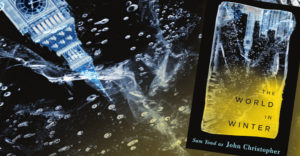 The World in Winter
The World in Winter
Wyrd Britain is a blog concerned with ‘stories in, of, from and about the stranger places of Britain … A Britain where the ghosts are unquiet, where the woods are alive and where distinctions between the present, the future and the past are permeable.’ ‘The World in Winter ‘, the blogger concludes, is going to haunt him for some time to come …
Another enjoyable slab of post-apocalyptic cosy catastrophe
Steve Dewey in his WordandLightSmithing blog takes a look at John Christopher’s ‘Wrinkle in the skin’ and enjoys the prose as much as the story: ‘The prose is as clean and lean as in “The Death of Grass.” It has a kind of traditional, British style I associate with Orwell, Greene and Somerset Maugham.’
John Christopher does it again!’
Blogger Olman takes ‘The White Voyage’ on his honeymoon and ‘ends up devouring it’. See here for his thoughts on ‘The Lotus Caves’, and here for ‘Fireball’.
‘Sarnia’: ‘a must-read for fans of all literature’
Having previously reviewed John Christopher’s ‘The Death of Grass’, writer Jasmin Kirkbride takes a look at Hilary Ford’s ‘Sarnia‘. ‘There is no doubt to me that Sam Youd does an exemplary job of getting himself into the female mindset, on a par for me with Arthur Golden’s “Memoirs of a Geisha”. A must-read for fans of all literature, but expect echoes of the book’s implications to haunt you for a good while after reading. It’s been a week and I’m still thinking about it!’
